No worries! – BSEE, Coast Guard Responding to Loss of Well Control Incident in Gulf of Mexico
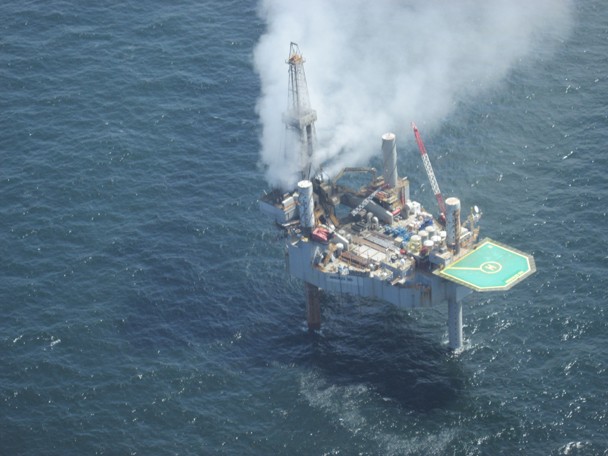 The Bureau of Safety and Environmental Enforcement (BSEE) and the Coast Guard are responding to a loss of well control event at Vermilion Block 356 in the Gulf of Mexico, approximately 108 miles southwest of Lafayette, Louisiana. Read more@gcaptain 12:08:
The Bureau of Safety and Environmental Enforcement (BSEE) and the Coast Guard are responding to a loss of well control event at Vermilion Block 356 in the Gulf of Mexico, approximately 108 miles southwest of Lafayette, Louisiana. Read more@gcaptain 12:08:

































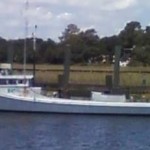

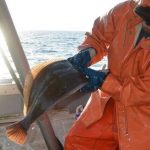


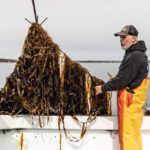


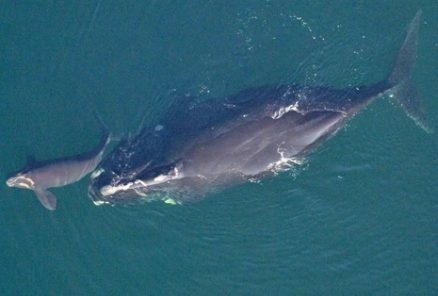
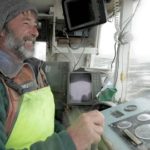
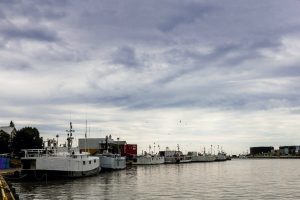



“The flow of gas, water and drilling fluids was diverted overboard, consistent with the emergency plan for the situation”, Garrett said. “To help prevent fire, seawater is being pumped into and over the flow stream”, he said.
“The flow of drilling fluids was diverted overboard” And that’s OK? No it’s not! Drilling fluids and drilling are toxic to anything that’s in the area. From a paper studying the effects of drilling waste on the shrimp in the Niger Delta system where extensive oil and gas exploitation has been going on for many years:
http://www.bepls.com/july_2013/18.pdf
(pg. 116 and Conclusion) “Alterations of the gill filaments seemed to be responsible for the mortality of shrimp observed in this study [7]. The drilling mud waste was toxic and resulted in the death of the test organisms mainly at high concentrations. This could be attributed to the presence of some dissolved compounds in the drilling mud wastes (e.g. chrome salt,surfactants, paraformaldehyde biocide, metals, and oil). Hydrocarbon oils, one of the components of oil-based mud, enter through the gills and disturb the main functional systems such as respiration, nervous system, blood formation and enzyme activity [3].
The values obtained from the toxicity test are an indication that the drilling mud has a potential to cause short-term lethal toxicity. It is also a prediction of likely adverse effect on shrimp populations in benthic sediment of the Niger Delta ecological zone if continuously exposed to oil-based mud wastes. Drilling mud pollution on bottom dwellers could be more detrimental since these organisms remain in their habitat and have no means of burrowing out completely and moving away from the site of pollution like pelagic organisms (fish), which can swim to other directions on sensing pollution in its habitat.”
CONCLUSION
“This study revealed that accidental and intentional release of drilling mud wastes constitutes a potential
threat to environmental sustainability and human health. This is due to the fact that most of the drilling
mud wastes released into the environment sorbs to sediment particles where they cause harm to
organisms in the sediment and overlying waters. The chemical compounds in the mud could also
bioaccumulate in the shrimp and cause adverse health conditions in man when consumed. There is therefore the need to adequately protect the delicate and rich biodiversity of the Niger Delta ecosystem.”
Jane Lubchenco declared in a Smithsonian Lecture a few months prior to the Deepwater Horizon Oil Spill travesty:
“Well, at the global scale, probably the one thing currently having the most impact is overfishing and destructive fishing gear,” Lubchenco said, compressing her Smithsonian Condition of the Ocean lecture into a sound byte.
“There is scientific consensus that fishing is fundamentally altering ocean ecosystems which are increasingly likely to yield massive swarms of jellyfish rather than food fish,” Lubchenco and her colleagues wrote in Oceans of Abundance.
Soon after bp dumped 200 million (or so) gallons of crude into the Gulf, Dr. Jane declared that about 75% of the oil was gone—eaten by microbes that were so very extra hungry due to the warm Gulf waters. The disappearance of the oil had nothing to do with the 2
million(or so) Gallons of extremely toxic Corexit dispersant—so toxic in fact it has been banned in Europe for decades.
But any Ocean destruction is a function of overfishing and destructive fishing gear? Now who do you suppose is running the show here?